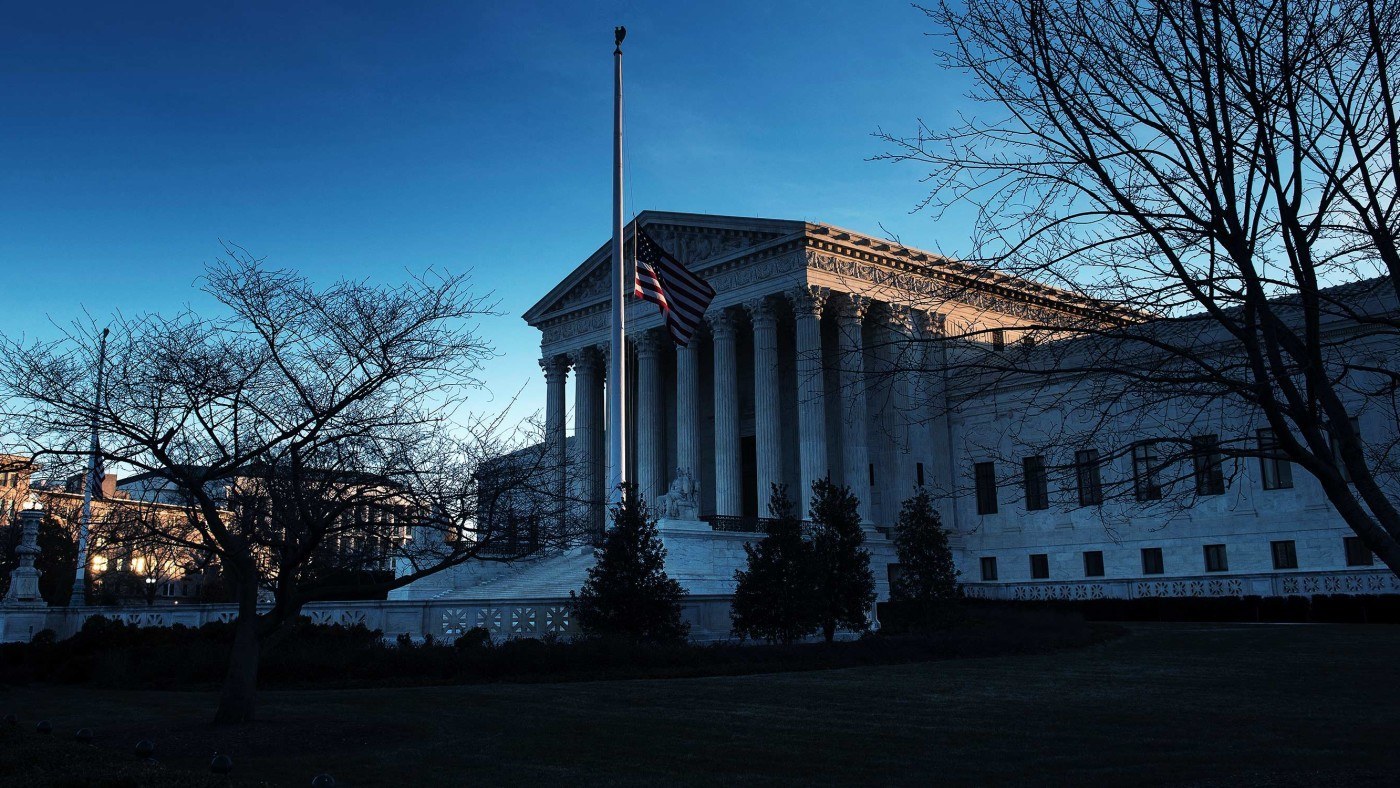The climax of every post-primary victory speech by Hillary Clinton is a passionate appeal to supporters to “secure the Supreme Court for progress for a generation” – meaning they must ensure the appointment of a liberal judge to replace the late Antonin Scalia.
Yet now that Barack Obama has nominated Merrick Garland, Clinton refuses to say whether she would appoint him, if elected president. Although he lacks a high profile on ideological matters Garland ticks all the liberal boxes, but he may not be committed enough or, at 63, young enough to meet Hillary’s absolutist agenda for “progressive” control of the US Supreme Court for a generation.
The most damning indictment of the state of American justice and the Constitution is the fact that this grotesque debate is taking place at all and, worse still, that nobody recognises how outrageous an affront it is to democracy. It is scandalous that the highest court of law regulating the world’s greatest superpower is a political football.
Commentators have been accustomed for so long to “do the math” in advance of every major Supreme Court decision – calculating the balance between conservative and liberal judges – that no one has stood back and asked what kind of cockamamie justice system is rigged along party lines. How would we react in Britain if we knew the outcome of every major judicial hearing in advance because of the political sympathies of those on the bench?
Whatever happened to separation of powers, that constitutional principle the US Founding Fathers, under the influence of Montesquieu, regarded as an indispensable safeguard of the republic they were fashioning? Contests between “liberals” and “conservatives” belong in legislative chambers, not in courtrooms. The Supreme Court has effectively become America’s third chamber, overruling both houses of Congress. It is the most extreme example of judicial activism in the world.
An example was Proposition 8, whereby more than 7 million people voted by referendum that same-sex marriage should not be recognised in California, and that state’s Supreme Court ratified this electoral outcome. But a federal district judge declared the decision unconstitutional and when the case reached the US Supreme Court the state government of California refused to support its electorate’s referendum verdict, so the justices in a conservative leaning court ruled 5-4 that those suing to reverse the district judge’s decision “had no standing”. Thus, politicians and five Supreme Court judges overruled the preferences of 7 million state voters – and today establishment apparatchiks shake their heads and wonder dazedly how the Trump tsunami came about.
Venezuela shocked the world last December when the outgoing socialists of Hugo Chávez’s party appointed 13 justices to the 32-strong Supreme Court which then annulled the election of three deputies of the incoming conservative government, removing its super-majority which would have allowed it to shorten the term in office of socialist president Nicolás Maduro. But the United States is hardly in a position to denounce that abuse of democracy, considering the state of its own extravagantly politicised justice system in which one school treats the Constitution as set in stone – a defensible thesis in a society with a written constitution – while the other side sees it as increasingly elastic, allowing creative interpretations to justify every initiative of which they approve. That situation hugely discredits the claims of those who canvass the benefits of a written constitution for Britain.
Is this the kind of democracy America wants to export to the rest of the world, with five unelected individuals empowered to shape society as they will? Is it beyond the capability of such a great country to create a Supreme Court to which the nation’s most brilliant lawyers would be appointed, chosen for their ideological neutrality and guaranteed to interpret the Constitution with forensic objectivity? The current arrangement is more suited to a banana republic than to what is supposedly the world’s leading democracy.


